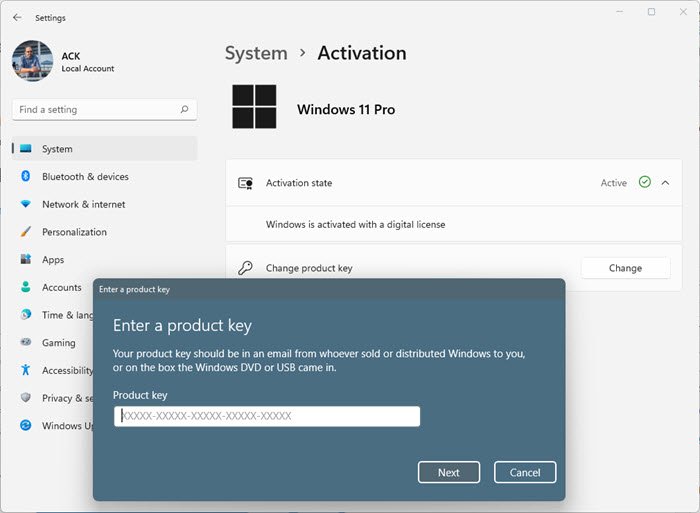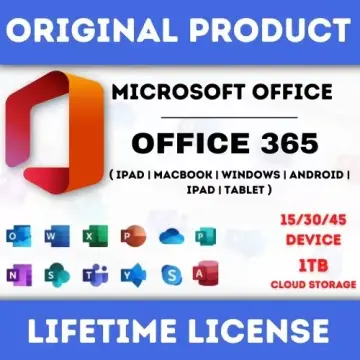It is essential to look for an official Certificate of Authenticity when purchasing Windows 10/11 Pro/Home licenses and activation keys. This will ensure you are purchasing a genuine software. The COA can be a physical certificate or a digital one that confirms the authenticity of your software. It is typically included in OEM licenses as well as retail licenses. Here are 10 important things to consider when dealing with COAs.
1. Be aware of what a COA is.
A Certificate Authenticity label sticker is a way to verify that the Windows product code is genuine. A hologram or unique alphanumeric code is typically found on physical copies of the key.
It's crucial to be aware of the COA's appearance in order to know if the key you bought is legal. The COA is usually on the product packaging, or, in the case of OEM models, it's attached to the computer.
2. Look for Holographic Features and Anti-copyright Elements.
Genuine COAs are protected by anti-counterfeiting features such as the use of holographic images as well as color-shifting ink.
Look for these holographic security components that are made to aid in identifying fake COAs.
3. Verify the COA with Microsoft's Resources
Microsoft offers resources to help verify authenticity. Microsoft has posted guidelines on its site about how a genuine COA should be presented, as well as examples of images.
Be aware of these functions so that you are aware of what to expect when you purchase the product key.
4. Caution with COAs without Product Keys
A genuine COA for Windows always includes a unique product key. COAs which do not include a unique product key or contain an unreadable or altered product key should be avoided.
The key should be in a clear, readable form, with no modifications.
5. Buy directly from Authorized Microsoft Partners or Reputable Sellers
Buy only through Microsoft authorized partners and certified sellers, or reliable electronic retailers. They are likely to provide genuine COAs in conjunction with the key.
Avoid purchasing from unknown or third-party vendors where the legitimacy of the COA cannot be guaranteed.
6. Digital Keys that Lack COA
If you're purchasing a digital license or key, the seller should give you a digital COA, or proof of authenticity, particularly if it's an OEM or retail key. This is especially important when purchasing second-hand or used computers.
If no copy of the COA or proof of authenticity is given If there is no proof of authenticity or COA, it could be a red flag.
7. Verify that the COA matches your product
Details on the COA must correspond to the Windows edition you're purchasing (e.g. Home Pro 32-bit, 64-bit or Pro 32-bit). A copyright product can be indicated by mismatching or inconsistent information.
If the device comes already installed, the COA must also be in line with the model and brand of the device.
8. Avoid COAs which appear to be damaged or altered
If you get an authentic certificate in the form of a physical document, check that it's not damaged or altered. Scratches and peeling may indicate that the device was taken from a different device or copied.
The COA can be damaged if the key is used or not genuine.
9. Some COAs aren't transferrable.
The COA used for OEM versions is linked to the original hardware. This means it can't be transferred when your computer is updated or changed. Find out if the COA works only for one device or if you can transfer it.
Retail licenses are usually the only ones with a COA. This allows you to be more flexible should you decide to upgrade your device.
10. Keep a copy of it for future information
Make a copy of your digital copy or a physical image of the COA along with the product's key to be able to refer back later. This can be useful in the event, for example, you need to reactivate Windows.
Securely storing it will stop the loss of the COA should the unfortunate event that it gets damaged or stolen.
Other Tips
Verify Serial Numbers. Some COAs may have serial numbers that you can verify with the manufacturer or reseller.
Maintain the COA on the original equipment: OEM licenses are valid as long as the COA is connected to the original equipment.
Keep receipts. When you buy licenses that have COAs, save your receipts as proof.
You can be sure that your Windows 10/11 product keys will remain valid for a long time by paying attention to COA details and verifying their authenticity. View the top windows 10 and product key for blog tips including windows 10 pro license key, windows 11 activation key home, buy windows 10 pro, windows 11 license key, Windows 11 key, windows 11 product key, windows 10 with license key, windows 11 product key, buy windows 10 license, buy windows 11 pro and more.

The Top 10 Factors To Take Into Consideration When Purchasing Microsoft Office Professional, Plus 2019/2021/2024
To ensure that you purchase the correct license type for your needs, it is important to be aware of the different types of licenses available. Different types of licenses come with different limitations, support options, and terms. Here are the top 10 tips for navigating the different kinds of licenses:
1. Know the most important types of licenses
Microsoft offers various types of licenses that are available for Office Professional Plus, including Retail, OEM (Original Equipment Manufacturer), and Volume Licensing. Each type has different conditions and restrictions:
Retail: The initial purchase typically tied to a single user. The license can be moved to a different device within the same user, if needed.
OEM: The device is tied to the original device, and cannot be moved. Often cheaper but less flexible.
Volume Licensing : This is an ideal option for schools or businesses because it provides an option that can be adjusted to accommodate several users.
2. Retail Licenses for Flexibility to Flexibility
A Retail License offers the most flexibility. It allows for installing Office on devices and moving the license should you need to upgrade or replace your PC. It is the best option for individuals who might upgrade their hardware over time or move devices.
3. OEM licenses at a lower cost
OEM licenses are cheaper, but cannot be transferred. They are also tied to the device. They are only available for computers that have Office installed by the manufacturer. A OEM license can cost less, but it limits your options when you build or upgrading a customized PC.
4. Understanding Volume Licensing
Volume licensing is intended for businesses, educational institutions as well as government agencies. It could be a better value in the event that you intend to buy Office for many computers or users. It provides many advantages that include centralized management, as well as more efficient deployment.
5. Multiple Device Licenses Multiple Device Licenses
Retail licenses usually include one or more devices (e.g. desktops and laptops) while Volume Licenses can cover hundreds or even thousands, based on the contract. When buying, make sure you are aware of the number of devices the license covers.
6. Check for License Transferability
Licenses for retail are typically transferable between devices (as as they're deactivated on the prior device) However, OEM licenses remain locked to the original device and aren't able to be transferred. This is a critical factor to take into account if you plan on change computers frequently.
7. Take a look at User Licenses and Device Licenses
Certain licenses are only available to certain users, while others can be applied to specific devices. If you're planning to purchase Office for a person who has multiple devices at once, choose user-based licenses such as those that come with Microsoft 365 Subscriptions or Volume Licenses.
8. Evaluation of Support and Updates
Licenses for retail and Volume Licenses generally come with full support and regular updates from Microsoft. In contrast, OEM licenses may have only limited support. Additionally, the software might not receive updates after the device to which it's attached is no longer supported by the manufacturer.
9. Understanding Licensing Upgrades
Volume Licensing and Retail Licenses allow you to upgrade Office to the latest version for a reduced price or via Microsoft Software Assurance.
OEM licenses typically do not come with upgrade rights. You might need to purchase a separate license for upgrading Office to a later version.
10. License Agreement Terms
Microsoft has issued the license agreement for Office Professional Plus. These terms include any limitations or regulations regarding the transfer of software, or rights to use it on certain devices or for specific purposes (e.g. for business or personal use). Knowing the terms will ensure that you are not caught off guard by any unanticipated limitations.
Conclusion
Selecting the appropriate type of license to use Microsoft Office Professional Plus 2019, 2021, or 2024 is based on your individual needs, whether you're a private user, a business or an institution. Understanding the differences between Retail, OEM, Volume Licensing and Volume Licensing helps you make informed decisions about flexibility, cost support and scaling. It is important to check the licensing details to ensure that you purchase the right software to meet your requirements. View the recommended Office 2024 for more recommendations including Microsoft office 2019, Office 2021 key, Microsoft office 2024, Office 2019 product key, Office 2021 professional plus, Microsoft office 2021 professional plus, Microsoft office 2019, Office 2021, Ms office 2021 pro plus, Microsoft office 2024 download and more.
